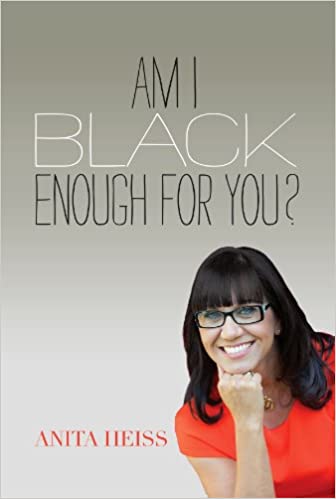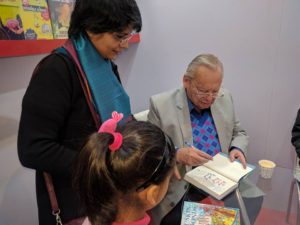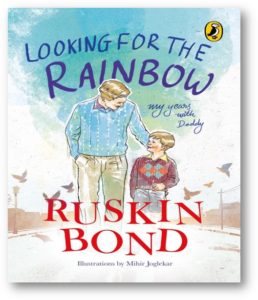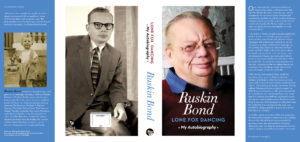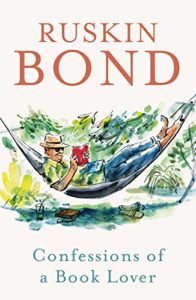 At the recently concluded World Book Fair, New Delhi, Kannan Sundaram of Kalachuvadu publications gave me a copy of Wild Girls, Wicked Words. An anthology of four women poets who write in Tamil –Malathi Maithri, Salma, Kutti Revathi and Sukirtharani. The poems have been translated from Tamil into English by well-known translator, Lakshmi Holmström. This book is a joint publication of Sangam House and Kalachuvadu Publications. It can be ordered online from Flipkart: http://www.flipkart.com/search?q=wild+girls+wicked+words&as=off&as-show=off&otracker=start .
At the recently concluded World Book Fair, New Delhi, Kannan Sundaram of Kalachuvadu publications gave me a copy of Wild Girls, Wicked Words. An anthology of four women poets who write in Tamil –Malathi Maithri, Salma, Kutti Revathi and Sukirtharani. The poems have been translated from Tamil into English by well-known translator, Lakshmi Holmström. This book is a joint publication of Sangam House and Kalachuvadu Publications. It can be ordered online from Flipkart: http://www.flipkart.com/search?q=wild+girls+wicked+words&as=off&as-show=off&otracker=start .
I enjoyed reading the poems. Powerful poetry. The themes range from love, war to oppression. With the women poets included in this anthology they write about the feelings commonly shared by women. Poetry is a form of expression that helps them to articulate their feelings and experiences. I can only read the poems in English but the Tamil versions have also been made available.
Given below is an extract from the exquisite introduction to the book. In it Lakshmi Holmström gives a nuanced and sensitive context to the poets featured, and places them within the traditions of Tamil literature and poetry. It is being reproduced with permission of Lakshmi Holmström, Sangam House and Kalachuvadu Publications.
Wild Girls, Wicked Words
Introduction
Lakshmi Holmström
In 2003, at a time when politicians and other establishment figures of Tamil Nadu were caught up in a surge of Tamil chauvinism, a group of men and women, setting themselves up as guardians of Tamil culture, objected publicly to the language of a new generation of women poets, particularly in the work of Malathi Maithri, Salma, Kutti Revathi and Sukirtharani. They charged the women with obscenity and immodesty.
These women poets came into prominence at the same time; their first collections of poetry were published between the years 2000 –2002, when they were in their late twenties and early thirties. Though each of these poets is unique in what she has to say in her poetry, there are some themes which are common to all of them, notably the politics of sexuality, and a woman’s relationship to her body. For the moral police, such language was not permissible for Tamil women. So the poets were condemned and vilified. The debate gained focus with the publication of Kutti Revathi’s Mulaigal (Breasts, 2002). The poets received abusive letters from individuals as well as literary organizations. The media had a field-day. A popular song writer for films gave a much publicised interview to a literary journal condemning women writers in general. This was followed by another film-song writer, Snehithan, who appeared on television declaring that these women should be lined up on Mount Road in Chennai, doused with kerosene oil and burnt alive.
 It might have been easy for these self-appointed moral guardians to assume that the young women poets were all ‘powerless’ and, therefore, particularly vulnerable: none of them comes from a privileged background. Salma comes from a conservative Muslim family based in a small town near Madurai; Sukirtharani is a school teacher in Lalapet, and a Dalit. On the contrary, despite considerable persecution and even death threats, the women refused to be intimidated, insisting on their freedom to write as they chose. Malathi Maithri sought legal advice, and made a complaint to the Women’s Commission against Snehithan.
It might have been easy for these self-appointed moral guardians to assume that the young women poets were all ‘powerless’ and, therefore, particularly vulnerable: none of them comes from a privileged background. Salma comes from a conservative Muslim family based in a small town near Madurai; Sukirtharani is a school teacher in Lalapet, and a Dalit. On the contrary, despite considerable persecution and even death threats, the women refused to be intimidated, insisting on their freedom to write as they chose. Malathi Maithri sought legal advice, and made a complaint to the Women’s Commission against Snehithan.
The Tamil literary world was divided in its response. Kalachuvadu, a literary-cum-political journal which has always engaged with political and literary issues, called a meeting in Chennai on 21 November 2004 to debate the issues that had been raised by the violent response both towards the poetry written by these four women poets, and towards the women personally. The meeting was chaired by Indira Parthasarathy, and attended by well-known writers such as Prapanjan, Ambai and Ravikumar, and older women poets Krishangini and Thaamarai. Rajasekaran reports in Kalachuvadu that the discussions were mostly to do with the larger issues of freedom of expression: Ravikumar spoke at length about the need to struggle against all oppressions, Prapanjan about patriarchy’s various and subtle workings, and Krishangini about why men find it so difficult to accept it when women write in specific and personal terms about their sexuality. However, Rajasekaran also pointed out that none of the critics and writers present analysed in any detail the specific poems which were at the root of the controversy.
Meanwhile, by 2005, the national press more generally was taking up the issue of moral censorship of Tamil women by all the political parties of Tamil Nadu. About this time too, two film-makers, Anjali Monteiro and K.P. Jayasankar, made a documentary on our four poets, entitled SheWrite. The film was important in that it brought to the notice of the nation at large the courageous stand the four women had taken; it also served to bring out many insights about their personal lives and backgrounds. However, in the film, the poetry was shown mostly as the focus of a controversy, and not examined in any detail for its own worth and value.
It is now ten years since the publication of Mulaigal. During this decade, each of our poets has published more than one further collection, continuing to write and publish as courageously as before. Each of them has won national and international acclaim. However, the grumbling against the language and thrust of their poetry goes on, while the wider issue of what Tamil women are allowed to wear, say, and where they choose to socialize continues to be raised from time to time and debated by the politicians, and in the press.
 When we look back at the history of Tamil poetry, the marginal status of women in the literary canon and their relatively meagre output is evident since classical times. It is true that, in modern times, Tamil women have been writing and publishing in various genres, but as far as poetry is concerned, we have seen a gradual change only since about 1970. Women such as R. Meenakshi and Sugantha Subramaniam were being published throughout the 1970s and 80s, yet it was only in the late 80s that their poems appeared in significant numbers, both in anthologies and single volumes. Then, suddenly, in the 1990s, the contribution of women to Tamil poetry became notable. This was a poetry that had to be noticed, not because it was written by women, but because it was different from what appeared in the mainstream.
When we look back at the history of Tamil poetry, the marginal status of women in the literary canon and their relatively meagre output is evident since classical times. It is true that, in modern times, Tamil women have been writing and publishing in various genres, but as far as poetry is concerned, we have seen a gradual change only since about 1970. Women such as R. Meenakshi and Sugantha Subramaniam were being published throughout the 1970s and 80s, yet it was only in the late 80s that their poems appeared in significant numbers, both in anthologies and single volumes. Then, suddenly, in the 1990s, the contribution of women to Tamil poetry became notable. This was a poetry that had to be noticed, not because it was written by women, but because it was different from what appeared in the mainstream.
As V. Geetha points out in her Introduction to an anthology of poetry by women from Tamil Nadu and Sri Lanka, Paratthal Athan Sudandiram (Flight is its Freedom, 2001), not all the contributors to the book are feminists, nor even necessarily sympathetic to feminism, yet they bring completely new themes into Tamil poetry: an engagement with the minutiae of everyday life, new perceptions of familial lives, the truth about a sudden end to childhood, about bleak marriages, the joys and sorrows of childbirth and motherhood. And some women, at least, were writing with boldness about their inner lives in very different terms, using an awareness of their bodies and their sexuality. Drawing attention to an overall tendency in the anthology towards inwardness and the inner world, V. Geetha calls upon the Tamil women poets of her time to engage more with the outer world and its politics; to consider social and cultural oppressions and inequalities more widely. She suggests that the difference between the Sri Lankan women and those from Tamil Nadu lies in the political engagement of the former; that as far as the Sri Lankans are concerned, even when they write about ‘myself’, ‘my love’, ‘my sorrow’, there is an underlying political discourse that pushes the individual story into a wider context.
That was in 2001, and it was important to say it at the time. Since then, we have seen another generation of women poets whose poetry does indeed engage with a wider political discourse and a more nuanced feminism. Yet, in the case of Malathi Maithri, Salma, Kutti Revathi and Sukirtharani, ever since the events so publicised by the media in 2003, their poetry has been grouped together and discussed only in terms of their engagement with questions of sexuality. It is also clear that a deep divide persists in the way readers and critics perceive women poets as a whole, today. The editor of a well-known literary journal observed to me that for these past years, Tamil women poets have been categorized into ‘Bad Girls’ who write ‘body poetry’ and ‘Good Girls’ who refrain from doing so.
This anthology, then, celebrates four women poets, Malathi Maithri, Salma, Kutti Revathi, and Sukirtharani, and showcases, through English translation, a small sample in each case, of their work over a decade. My attempt has been to bring out the beauty, originality, and above all the individuality of each of these poets. It is perhaps useful to remember that the traditional values prescribed for the ‘Good’ Tamil woman were accham, madam and naanam (fearfulness, propriety, modesty or shame). Our poets have chosen instead, the opposite virtues of fearlessness, outspokenness, and a ceaseless questioning of prescribed rules. It is surely significant that at different times and variously, they have claimed as their foremothers, role models and equals, Avvai, Velliviidhi and Sappho; Anna Akhmatova, Sylvia Plath and Kamala Das. And Eve, above all, who defied divine authority to pluck the fruit of the Tree of Knowledge. Bad Girls indeed, all of them.
***
There are many common themes and tropes among the poems presented here: light ‘prowls like a cat’, the tiger stalks within the bedroom and along the imagined mountain landscape. But there are also profound differences, which the reader will note. Each poet has struggled to find a language of her own to express her particular vision. ‘Language must be redeemed from the grave of its own inadequacy’, Malathi Maithri wrote in 2001, in her Editor’s Note to Paratthal Athan Sudandiram, putting forward, later on, the possibility of a pey (demon) language. Sukirtharani seeks an ‘infant language’, with all the rough and physical reality of new birth, still sticky with blood. Kutti Revathi invents a blazing language of love. Salma reaches out, even to the ‘rust of silence’.
Above all, in this anthology, I have wanted to celebrate the courage of each of these poets in breaking out of and defying easy categories. As Sukirtharani puts it in her magnificent poem, ‘Nature’s fountainhead’ (Iyarkaiyin peruutru):
I myself will become
earth
fire
sky
wind
water.
The more you confine me, the more I will spill over,
Nature’s fountainhead.
***
Wild Girls, Wicked Words Poems of Malathi Maithri, Salma, Kutti Revathi and Sukirtharani. Edited and translated by Lakshmi Holmström. Kalachuvadu Publications and Sangam House, Nagercoil, India, Dec 2012. Pb. pp. 240. Rs. 295
26 Feb 2014
